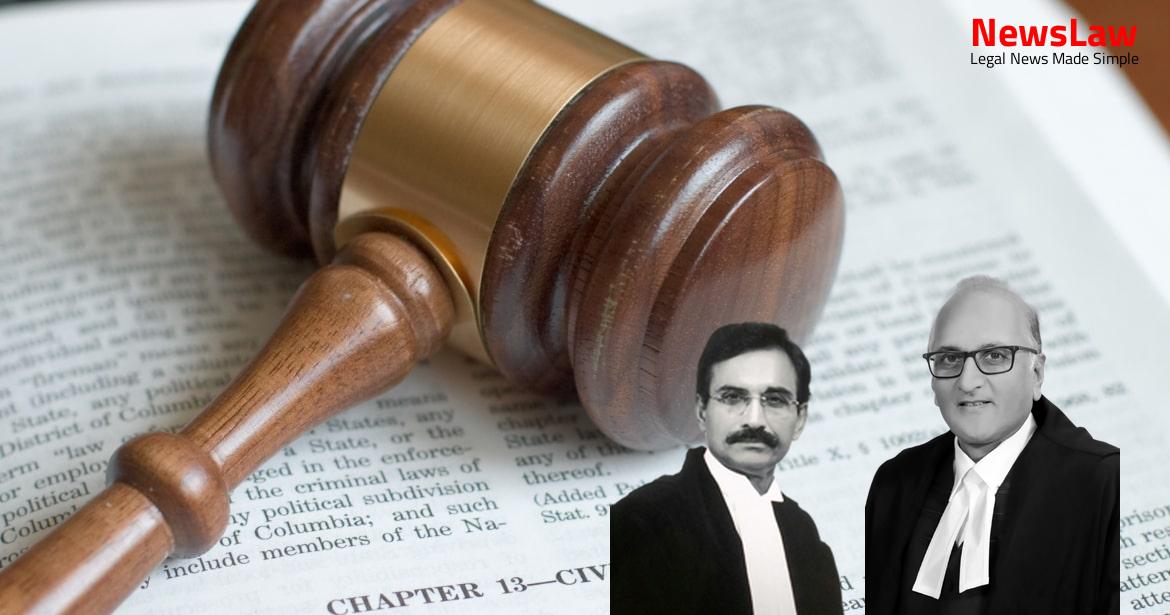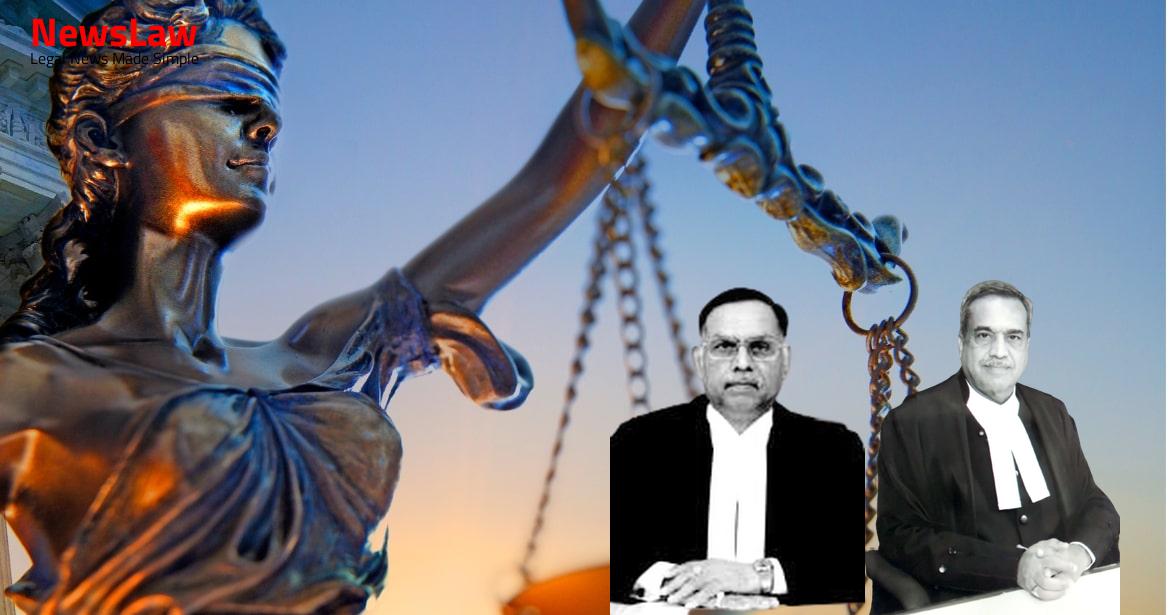The Court’s legal analysis on streamlining execution proceedings dives deep into key provisions like Section 47 of CPC and Order XXI. Through an emphasis on appointing Court Commissioners and Receivers, the aim is to expedite objection resolution during execution for a smoother legal process. Join us as we explore the intricacies of court’s analysis in ensuring swift execution of court orders.
Facts
- The High Court and the Executing Court were directed to consider all materials on record, including reports submitted by the previous Court Commissioner.
- The appellant, Gopilal Ladha, was deemed to have sought more than what was left after the decree holders had purchased, leading to conveyance overlaps.
- Narayanamma purchased a property measuring 1 Acre in Bengaluru, leading to disputes over boundaries and identities between parties.
- The Special Land Acquisition Officer was directed by the High Court in earlier Writ Petitions to conduct an inquiry and possibly refer the matter to the Civil Court.
- A section of the property owned by Narayanamma was acquired, leading to the disbursement of compensation.
- The vendored portion of the property was sold to the first two respondents, leading to a suit for declaration of the sale deeds being void.
- The vendors and another respondent executed a partition deed, and the Land Acquisition Officer ordered deposits by parties involved.
- There were objections to the proposed acquisition and claims for possession by the decree holders.
- Multiple sale deeds were executed during the proceedings, with various parties involved in the transactions.
- Contempt proceedings were initiated due to non-compliance with the High Court’s orders regarding deposits, leading to the present appeals.
- The High Court issued directions to deposit the amounts to the parties involved.
- The High Court directed the Executing Court to complete the process within six months.
- After considering all materials, the court concluded that the compensation could not have been dispersed to the vendors, the appellant, and Respondents no. 4 to 7.
Also Read: Electoral Malpractices in Mayor Election
Arguments
- The respondents argue against the High Court’s rejection of the appellants’ request for forensic examination of documents by handwriting experts.
- They claim that the appellants’ doubts regarding the genuineness and authenticity of the signatures on the documents were overlooked.
- The respondents urge the Court not to interfere with the High Court’s findings, stating that multiple proceedings were taken and the judgment debtors sold the property several times, even after the decree holders purchased portions of it.
Also Read: Balancing Power and Transparency: Electoral Bonds Struck Down, Disclosure Mandated
Analysis
- The Court emphasizes the importance of adjudicating all related issues to the subject matter during the suit itself to ensure a clear and executable decree.
- Measures suggested include early production of documents relating to third-party rights, ensuring joinder of necessary parties, and avoiding multiplicity of suits.
- Section 47 of CPC and Order XXI focus on adjudication of limited issues relating to execution, aimed at preventing multiple suits.
- The Court observes a rise in re-trial-like proceedings during execution, hindering the realization of decree benefits.
- Order I and Order II emphasize joinder of parties and causes of action to streamline legal proceedings.
- The Court underlines the need for swift execution of money decrees under Order XXI Rule 11 and Section 47.
- Hindrances in execution proceedings are noted, especially due to abuse of legal processes by judgment debtors.
- Judicial Academies are urged to train court personnel for efficient execution of court orders.
- Appointment of Court Receivers and issuing show cause notices are suggested measures for aiding in execution processes.
- The Court discourages frivolous objections and stresses on due diligence during adjudication to prevent delays in execution.
- Appointing Court Commissioners and Receivers, as well as demanding security in certain cases, are recommended actions for smooth execution proceedings.
- The Court warns against misuse of legal remedies and obstructionist tactics to delay decree execution.
- Provisions like Section 47 are highlighted for preventing unnecessary litigation and expediting objection resolution during execution.
- The importance of appointing Court Commissioners at the right time is emphasized to prevent obstructions in execution.
- Directions are given to ensure cooperation and compliance in execution proceedings to avoid unnecessary delays.
- The difficulties faced by litigants in India primarily arise after obtaining a decree.
- The Court recommends amendments to the Code of Civil Procedure, 1908 to ensure a continuous process of adjudication from initiation to relief through execution proceedings.
- Execution proceedings, meant to aid justice, are being misused to obstruct justice.
- The Court previously mentioned in Shub Karan Bubna @ Shub Karan Prasad Bubna v Sita Saran Bubna about provisions enabling the frustration of successful execution, urging the Law Commission and Parliament to address this issue.
- Section 60 of CPC should be interpreted liberally to include any person from whom the judgment-debtor may have the ability to derive share, profit, or property.
- Issue public notice specifying the suit property and inviting claims from anyone in possession of the property or claiming possession or having any right, title, or interest in the property.
- If objections are not raised at this stage, parties cannot raise any objection later.
- Order XXI Rule 35 dictates that possession of immovable property decreed should be delivered to the party or their appointee, and any person bound by the decree refusing to vacate the property may be removed if necessary.
Also Read: Recall of Resolution Plan Approval: Legal Analysis
Decision
- All High Courts directed to update Rules relating to Execution of Decrees within one year
- Executing Court must dispose of Execution Proceedings within six months, extendable only with written reasons
- High Courts to ensure Rules are in line with CPC and directions for expedited execution
- Use of Information Technology tools encouraged for faster execution process
- Above directions enforceable until new Rules are in place
Case Title: RAHUL S SHAH Vs. JINENDRAKUMAR GANDHI (2021 INSC 270)
Case Number: C.A. No.-001659-001660 / 2021



